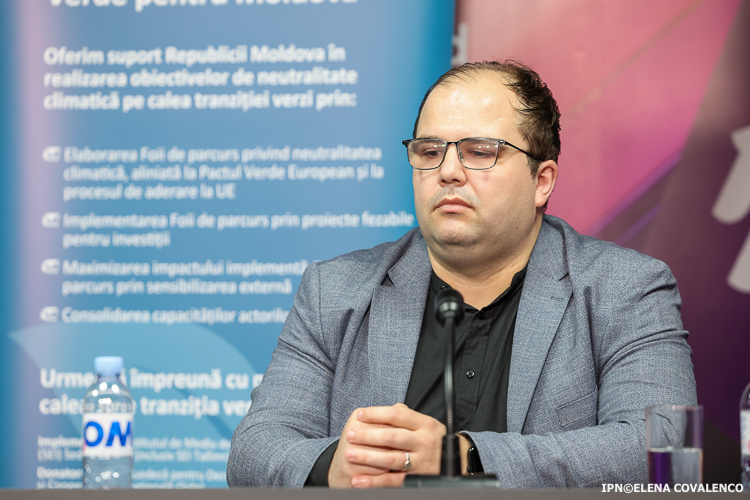For the Republic of Moldova, transitioning to green energy is not an option but an obligation, as the country is largely dependent on imported energy resources. Moldova is not among the countries with abundant conventional energy resources that can afford the luxury of a slower transition to green energy. Being reliant on imports, the shift to green energy presents an extraordinary opportunity for Moldova to develop local energy production and achieve greater energy independence.
These statements were made by Stas Madan, Program Director at the Independent Analytical Center Expert-Grup, during the debate titled "The Population’s Readiness and Willingness to Support Green Transition Initiatives in the Republic of Moldova," as reported by IPN.
Stas Madan highlighted the existence of a macroeconomic indicator used internationally to measure energy intensity, which assesses how much energy a country consumes to generate one unit of GDP. Between 2010 and 2022, Moldova managed to reduce this indicator by about 25%, but it still remains below the global average and lags behind many countries in the region.
"Compared to Romania, this indicator is twice as high. In other words, we still consume nearly twice as much energy to achieve the same economic result as Romania," the expert noted.
According to him, the green energy transition impacts both businesses and the general population. For businesses, implementing energy consumption reduction measures will make them more competitive, as energy costs per unit will decrease. For households, residential energy consumption remains very high - nearly half of total energy consumption. Therefore, the transition to green energy will also lead to lower utility bills for the population.
At the same time, Madan emphasized that Moldova cannot ignore the European Green Deal, especially since the country's goal of European integration is already enshrined in its Constitution. Consequently, it is necessary to align national policies with those of the European Union, including environmental policies.
In its strategic documents, Moldova has committed to achieving a 27% share of renewable energy in total final energy consumption by 2030. While ambitious, this goal is not unattainable, Stas Madan pointed out.
"In the short term, this transition may lead to higher costs, but in the medium and long term, the economy will undoubtedly benefit. And as long as all countries in the region are moving in this direction, if Moldova does not take concrete steps, we risk falling behind economically and remaining highly dependent on imports," the Expert-Grup Program Director stated.
During the debates, the results of a six-month study conducted in Moldova were presented, involving 1,000 respondents. According to the study, 61% of citizens have a good or very good understanding of climate change. However, 5% of respondents consider their knowledge on the subject to be insufficient. Additionally, 85% of respondents reported experiencing negative health effects due to climate change, 51% stated they face economic difficulties caused by climate changes, and 73% said that climate change personally affects them or their loved ones.
The study was developed as part of the Green Agenda project, implemented by the Stockholm Environment Institute, funded by the Swedish International Development Cooperation Agency, with the national implementation partner being EcoContact NGO.

